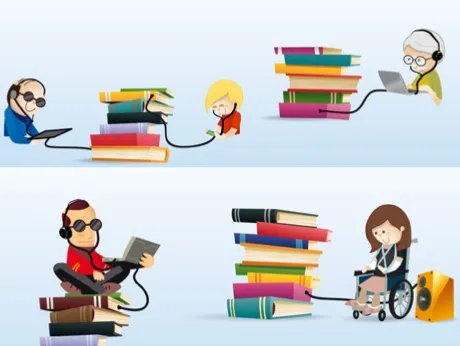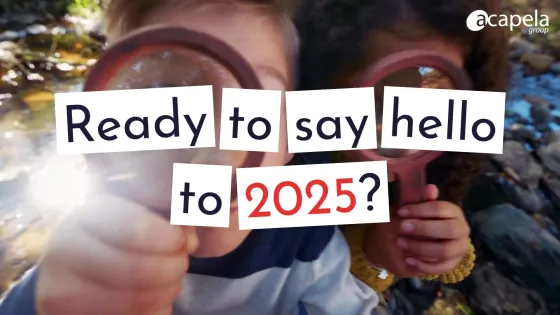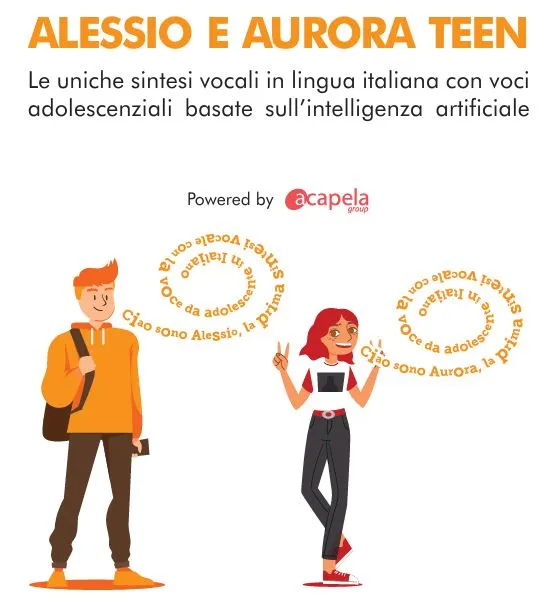
Six months after the introduction of audio books read out loud by Acapela Text To Speech voice ‘Alice’, the AVH reports on end user reaction to this new offering.

The audio book is by far the media most used by visually impaired users to access written content. In 2012, 93% of the AVH library loans were audio books. But their production process when read by a human voice is long and cannot be shortened, hardly compatible with the end user’s desire to access audio versions of novels that make the news at the same time as the printed books appear. While 60 000 new novels are available each year in the bookstores, only 1000 of them enter the AVH collection.
Facts & figures
With audio books read by Text To Speech, the AVH can finally provide books to its users very quickly. As proof, during the new book season and the Fall French literary prizes, the audio versions of over 50 newly printed books were produced in a first wave.
Since the launch early in July, the number of loans has been extremely high: during the first 3 months, 14% of loaned titles were audio books read by Alice’s voice, even though books read by speech synthesis were under represented within the AVH library collection.
Since July, the titles most downloaded from the Éole library have consistently been audio books read by Text To Speech. Among the top 50 books most downloaded, 24 use Alice’s voice.
‘Text To Speech allows the AVH, for the first time in our history, to provide our end users with audio versions of the book season, simultaneously as they make the news. From September to October we have delivered in 3 different waves no less than 50 titles of freshly printed books. The feed back from the end users has been very positive’, comments Fernando Pinto da Silva, AVH Project Manager.
The prestigious ‘Goncourt’ award, for instance, has been downloaded 149 times and loaned 26 times on CD format in only 5 days.
End user satisfaction survey
Results of the survey, gleaned from information provided by the first 500 users to loan a book using speech synthesis, are very positive.
- 94,39 % of surveyed people assess the Alice voice as understandable or very understandable.
- 72 % of surveyed people say they will borrow books read by speech synthesis again.
- 71 % consider the introduction of speech synthesis major progress or very major progress.
Testimonies
‘I am 75 years old and I never thought I would be able to read the latest best sellers at the same time as people who can see. What a revolution!’
‘You get used very quickly to Alice’s voice. The voice is perfectly neutral, and we create the intonation ourselves, as we did, before, while reading print in books. I’m sometimes less sidetracked with Alice than with business books. Conversely, she is sometimes monotone, but we only notice if the book bores us!’
‘Alice’s voice is very pleasant and easy to understand. The reading with synthesized voice is very satisfying.’
‘It’s great progress to be able to read books recorded with this synthetic voice. Recent books are made accessible and can be discussed with people around us who can see.’
‘I appreciate enormously the use of synthetic voice which offers a superb choice.’
‘Personally, I find it so wonderful to have so quickly books which have just come out and about which everyone is talking that Alice’s small imperfections are mostly forgiven. I also think that this reading, of which the inflections are always the same, and which, essentially, doesn’t convey emotion, ‘obliges’ a very personal reading. In fact it’s very different from a recording by a donated voice and it seems to me that we shouldn’t expect the same thing’
‘I naively thought that Alice was a real person and asked myself how she could read so many books!’
‘I was pleasantly surprised by the speed with which we can access the latest new books and I am aware that only a synthetic voice can offer us this service – so well done.’





